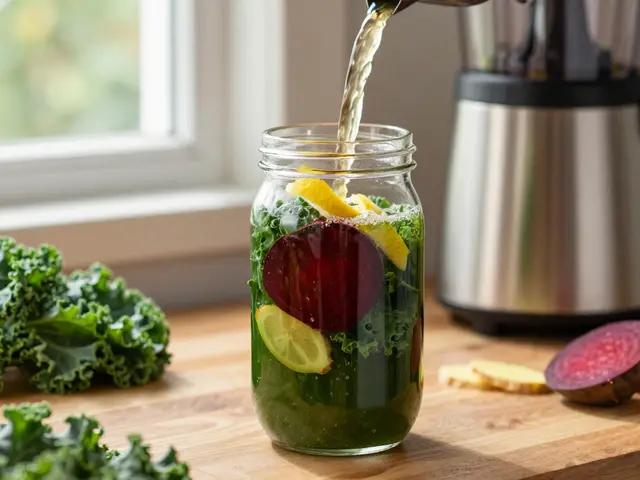Reduce Inflammation: Practical Steps You Can Use Today
Hidden inflammation shows up as stiffness, low energy, slow recovery, or stubborn aches. You don’t need a complicated plan to start lowering it. Small, consistent changes in what you eat, how you move, and how you sleep can cut inflammation and make you feel better within weeks.
Eat to calm inflammation
Focus on whole foods: oily fish (salmon, sardines), leafy greens, colorful vegetables, berries, nuts like walnuts, beans, and olive oil. These give you omega-3 fats, fiber, and antioxidants that help quiet inflammatory processes.
Trim the usual suspects: sugar, sweets, refined carbs (white bread, pastries), processed meats, and fried fast food. Swap soda for sparkling water with lemon, order whole grain or legume-based options, and snack on fruit plus a handful of nuts instead of chips or candy.
Add simple anti-inflammatory spices. Turmeric with black pepper, fresh ginger, and garlic fit into soups, smoothies, roasted veggies, and dressings. If you try a curcumin supplement, pick a reputable brand and check with your doctor—especially if you take blood thinners.
Daily habits that lower inflammation
Move regularly. Aim for 30 minutes most days—walking, cycling, swimming, or a short strength session. Strength training twice a week helps reduce body fat and supports joint health. Break long sitting periods every 30–60 minutes with a quick walk or stretch.
Sleep is non-negotiable. Shoot for a consistent bedtime and 7–8 hours of sleep. A simple wind-down works: dim lights, put screens away 30 minutes before bed, and take a few deep breaths. Better sleep lowers inflammatory markers and makes other healthy habits easier.
Manage stress with quick tools: 5 minutes of focused breathing, a short guided meditation, or gentle stretching. These lower your stress response and reduce the inflammation that stress feeds.
Keep weight in a healthy range. Losing even 5–10% of body weight often lowers inflammation noticeably. Aim for slow, steady weight loss through balanced meals and regular movement—crash diets usually backfire.
Mind your gut and mouth. Eat fiber-rich foods and include fermented foods like yogurt if you tolerate them. Good gut health helps regulate immune responses. Also floss and see your dentist; chronic gum inflammation can add to whole-body inflammation.
Choose recovery practices that help: regular sports or therapeutic massage, gentle foam rolling, heat after minor soreness, or cold after acute injury. These tools aid circulation and tissue repair.
Track changes. Pick one food swap, one sleep habit, and one movement goal for the week. Note energy, sleep quality, stiffness, or mood. Many people see early wins in two to four weeks.
If you have major joint pain, unexplained fever, or a known autoimmune condition, see your healthcare provider. For most people, these practical steps cut daily inflammation and make everyday life feel easier.
Can Better Gut Health Reduce Inflammation?
Hey there, tummy lovers! Did you know that the secret to reducing inflammation might just be living in your gut? It's true! Researchers have found that by improving our gut health, we can significantly reduce inflammation in our bodies. So, let's trade those anti-inflammatory pills for some tasty probiotics, and give a whole new meaning to "gut feeling"! After all, a happy gut equals a happy body - and who doesn't want that?
View More





